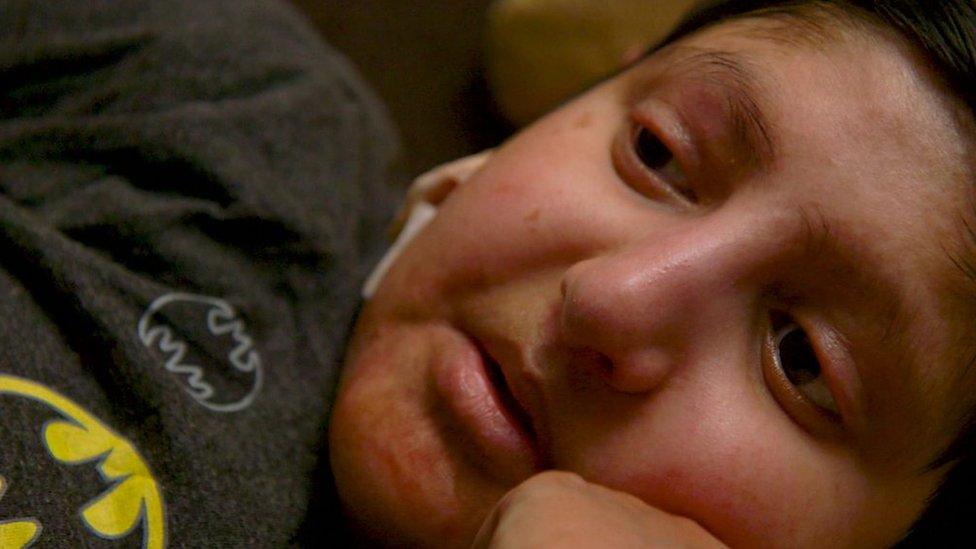My 'butterfly skin' could kill me but I want to raise awareness for others
- Published
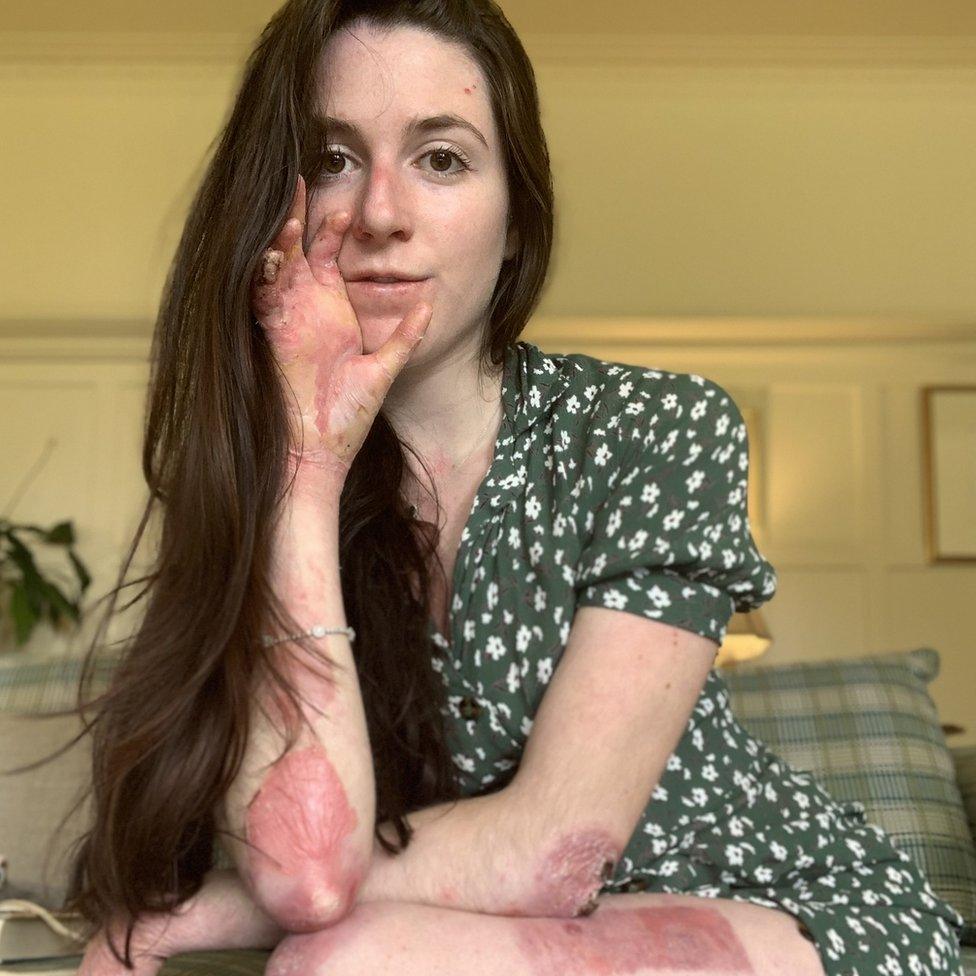
"I get asked a lot if I feel like I'm on borrowed time... I definitely don't - it's my own. And I'm going to use it to the best of my capabilities."
Lucy Beal Lott is 20 and lives with a rare condition called epidermolysis bullosa, external (EB).
It means her skin can tear and blister at even the slightest touch, and Lucy often has to bandage up painful wounds.
Young people with EB are sometimes called "butterfly children" because their skin is fragile, like a butterfly's wing.
"The question I get asked quite a bit online is: 'Does it hurt?' And I'm like, 'I mean, yeah. Open wounds can be quite painful'," she says.
"Right now, I also have a large open wound on my ankle, and I can really feel that."
It can also affect Lucy internally - for example, she had to have multiple throat surgeries during her teen years to treat scar tissue.
People with the condition can also die early. EB is genetic, which means Lucy inherited it and it can't be caught. There is no known cure.
It is estimated that more than 5,000 people are living with EB in the UK,, external and 500,000 worldwide.
Lucy, who is originally from Austin, Texas, is currently studying at St Andrews University in Scotland. She says her EB was first diagnosed when she was born without skin in some places on her body.
"They knew that something was really wrong whenever a nurse removed a monitor from my skin, and it took the entire patch of skin away with it," she tells Radio 1 Newsbeat.
'It's like my shadow'
"EB grew up with me like my shadow," says Lucy. "I learned the name of my condition and the word 'terminal' around the same time I learned my own name."
But far from allowing her condition to define her life in a negative way, Lucy has taken the opposite approach.
She's become a positive voice for fellow sufferers and has helped raised awareness, appearing in magazines, giving a Ted talk and has just finished her first novel - all while she's still been studying.
She attributes her drive to the fact that her condition led to her missing school as a child. "I loved school. I was that weird kid. I'd get so upset that I had to miss out on learning," she says.
"I saw that the only thing EB couldn't limit for me was my ability to learn."
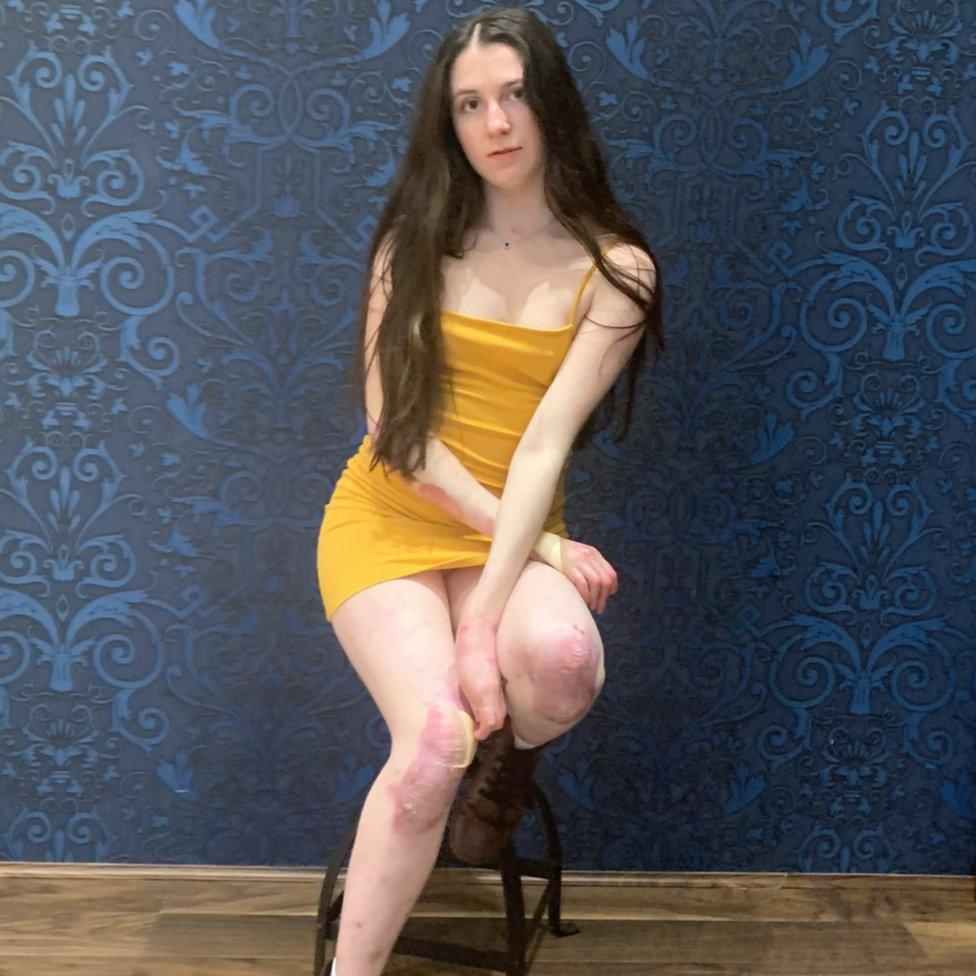
Lucy also posts pictures of herself on Instagram, which she says is a great way to connect with other people living with a wide range of skin conditions.
"It's hard enough being a teenager but being one that looks different is very, very hard," she says.
"So if a teenager can see someone who looks like them in the media, it can really help."
Now, she gets messages from people around the world who have visible skin conditions like hers.
"I wake up every day with people telling me: 'Thank you', which makes my heart so full."
'They are an amazing group of people'
Lucy's attitude isn't unique among the EB community, according to Caroline Collins, who's the director of research at EB charity Debra.
"They are some of the most positive and forward-looking young people I have ever met," she says.
"When I look at how many of them are going through school, going to university, having careers and living the best life that they possibly can in the face of adversity, I'm astonished to be honest. They are an amazing group of people."
But the fact of EB is that it shortens people's lives.
There are three main types. The form of the condition that Lucy lives with is recessive dystrophic EB, where the symptoms range from mild to severe.
The more extreme form of the condition - called junctional EB - is the rarest.
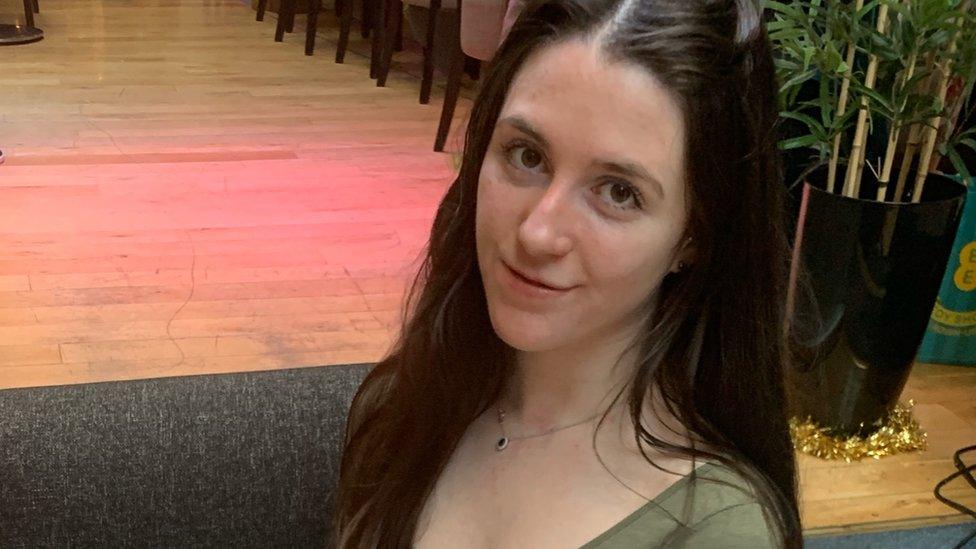
Lucy was born in Texas but now lives in Scotland
Caroline is leading a meeting, which Lucy will also attend, with other EB specialists from around the world in London next week - it's the biggest of its kind.
"We've come a long way in the last few years," says Caroline, "but more research needs to be done. Since it's a genetic condition, you may end up having some sort of genetic treatment - and those treatments are in their infancy.
"For certain types of EB, it can be fatal within weeks or months," she adds.
"Other young people may go on and live through their teens and 20s, into their 30s or 40s."
But for Lucy right now, it's all about focusing on the future.
She's got what seems like an endless list of goals: "I hope to do much more for awareness this year. I have a lot of internships to apply for and I hope to get my masters soon as well.
"If it were up to me, I would just go to school forever."


Follow Newsbeat on Instagram, external, Facebook, external, Twitter, external and YouTube, external.
Listen to Newsbeat live at 12:45 and 17:45 weekdays - or listen back here.
- Published24 March 2017
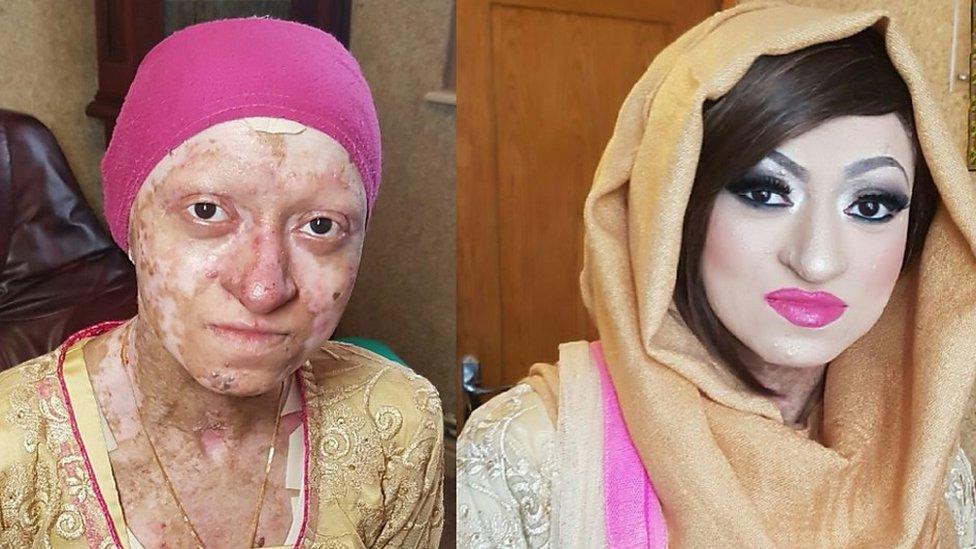
- Published16 November 2017
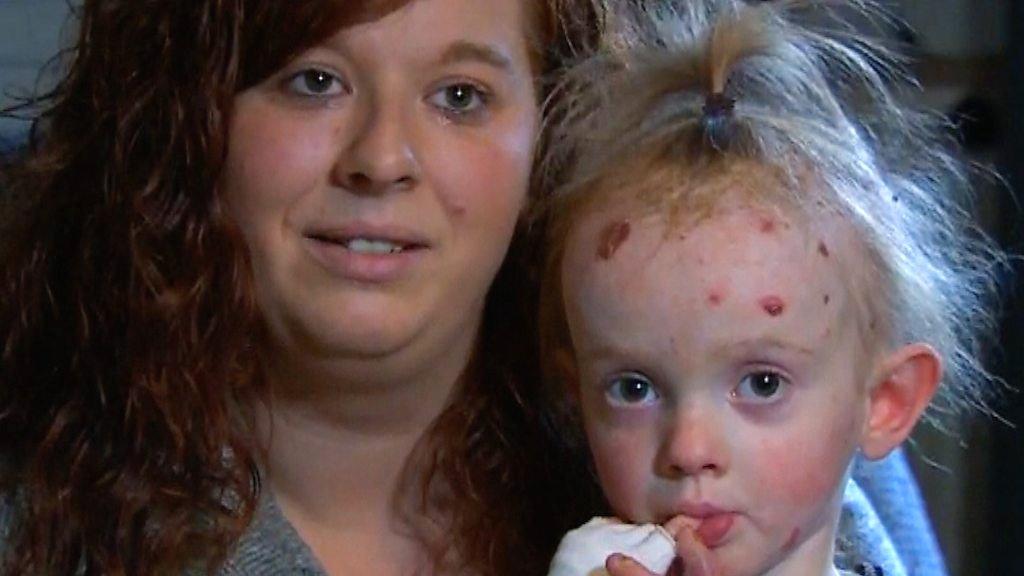
- Published20 September 2019
- Published8 January 2018
